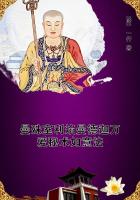"Let that name be her true one, then," said Ramona. And so it was settled; and when Father Gaspara took the little one in his arms, and made the sign of the cross on her brow, he pronounced with some difficulty the syllables of the Indian name, which meant "Blue Eyes," or "Eyes of the Sky."
Heretofore, when Father Gaspara had come to San Pasquale to say mass, he had slept at Lomax's, the store and post-office, six miles away, in the Bernardo valley. But Ysidro, with great pride, had this time ridden to meet him, to say that his cousin Alessandro, who had come to live in the valley, and had a good new adobe house, begged that the Father would do him the honor to stay with him.
"And indeed, Father," added Ysidro, "you will be far better lodged and fed than in the house of Lomax. My cousin's wife knows well how all should be done."
"Alessandro! Alessandro!" said the Father, musingly. "Has he been long married?"
"No, Father," answered Ysidro. "But little more than two years.
They were married by you, on their way from Temecula here."
"Ay, ay. I remember," said Father Gaspara. "I will come;" and it was with no small interest that he looked forward to meeting again the couple that had so strongly impressed him.
Ramona was full of eager interest in her preparations for entertaining the priest. This was like the olden time; and as she busied herself with her cooking and other arrangements, the thought of Father Salvierderra was much in her mind. She could, perhaps, hear news of him from Father Gaspara. It was she who had suggested the idea to Alessandro; and when he said, "But where will you sleep yourself, with the child, Majella, if we give our room to the Father? I can lie on the floor outside; but you?"-- "I will go to Ysidro's, and sleep with Juana," she replied. "For two nights, it is no matter; and it is such shame to have the Father sleep in the house of an American, when we have a good bed like this!"
Seldom in his life had Alessandro experienced such a sense of gratification as he did when he led Father Gaspara into his and Ramona's bedroom. The clean whitewashed walls, the bed neatly made, with broad lace on sheets and pillows, hung with curtains and a canopy of bright red calico, the old carved chairs, the Madonna shrine in its bower of green leaves, the shelves on the walls, the white-curtained window, -- all made up a picture such as Father Gaspara had never before seen in his pilgrimages among the Indian villages. He could not restrain an ejaculation of surprise.
Then his eye falling on the golden rosary, he exclaimed, "Where got you that?"
"It is my wife's," replied Alessandro, proudly. "It was given to her by Father Salvierderra."
"Ah!" said the Father. "He died the other day."
"Dead! Father Salvierderra dead!" cried Alessandro. "That will be a terrible blow. Oh, Father, I implore you not to speak of it in her presence. She must not know it till after the christening. It will make her heart heavy, so that she will have no joy."
Father Gaspara was still scrutinizing the rosary and crucifix. "To be sure, to be sure," he said absently; "I will say nothing of it; but this is a work of art, this crucifix; do you know what you have here? And this,-- is this not an altar-cloth?" he added, lifting up the beautiful wrought altar-cloth, which Ramona, in honor of his coming, had pinned on the wall below the Madonna's shrine.
"Yes, Father, it was made for that. My wife made it. It was to be a present to Father Salvierderra; but she has not seen him, to give it to him. It will take the light out of the sun for her, when first she hears that he is dead,"
Father Gaspara was about to ask another question, when Ramona appeared in the doorway, flushed with running. She had carried the baby over to Juana's and left her there, that she might be free to serve the Father's supper.
"I pray you tell her not," said Alessandro, under his breath; but it was too late. Seeing the Father with her rosary in his hand, Ramona exclaimed:-- "That, Father, is my most sacred possession. It once belonged to Father Peyri, of San Luis Rey, and he gave it to Father Salvierderra, who gave it to me, Know you Father Salvierderra? I was hoping to hear news of him through you."
"Yes, I knew him,-- not very well; it is long since I saw him," stammered Father Gaspara. His hesitancy alone would not have told Ramona the truth; she would have set that down to the secular priest's indifference, or hostility, to the Franciscan order; but looking at Alessandro, she saw terror and sadness on his face. No shadow there ever escaped her eye. "What is it, Alessandro?" she exclaimed. "Is it something about Father Salvierderra? Is he ill?"
Alessandro shook his head. He did not know what to say. Looking from one to the other, seeing the confused pain in both their faces, Ramona, laying both her hands on her breast, in the expressive gesture she had learned from the Indian women, cried out in a piteous tone: "You will not tell me! You do not speak! Then he is dead!" and she sank on her knees.
"Yes, my daughter, he is dead," said Father Gaspara, more tenderly than that brusque and warlike priest often spoke. "He died a month ago, at Santa Barbara. I am grieved to have brought you tidings to give you such sorrow. But you must not mourn for him. He was very feeble, and he longed to die, I heard. He could no longer work, and he did not wish to live."
Ramona had buried her face in her hands. The Father's words were only a confused sound in her ears. She had heard nothing after the words, "a month ago." She remained silent and motionless for some moments; then rising, without speaking a word, or looking at either of the men, she crossed the room and knelt down before the Madonna. By a common impulse, both Alessandro and Father Gaspara silently left the room. As they stood together outside the door, the Father said, "I would go back to Lomax's if it were not so late. I like not to be here when your wife is in such grief."














